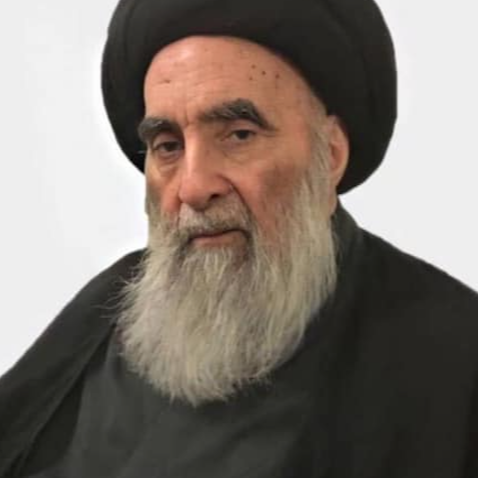Iraqi Officials Condemn Israeli Media for Targeting Grand Ayatollah Al-Sistani
Israeli media activity in recent days has caused an uproar in every corner of Iraq. The highest Shiite authority in Iraq, Grand Ayatollah Ali al-Sistani, was shown on a target list on a program that is aired on Israel’s Channel 14. This led to firm protests from both the officials and the people of Iraq.
The Context of the Incident
On October 9, 2024, Channel 14 featured a graphic that showed Grand Ayatollah Al-Sistani along with several other Iranian sympathizers whose images were portrayed with crosshairs. The graphic insinuated that the individuals would be subject to assassination. The Iraqi government immediately issued a statement condemning this act, describing it as a heinous assault targeting its people’s high spiritual leader.
Government Response
Basim al-Awadi, who serves as the Iraqi government spokesman, issued a very strong condemnation of the Israeli media. He added that such provocations are a threat to world peace and safety. Al-Awadi also added, ‘The Iraqi government strongly condemns any aggression against our supreme religious authority,’ simple as that, stressing Sistani’s great respect not only in Iraq but in the whole Arab and Islamic world.
The Iraqi presidency supported this position, claiming that such provocations may incite violence in the region. They also urged the relevant global associations to combat these incitements.
KSA and IRAN: A Diplomatic Approach to Gaza and Lebanon
The Significance of Grand Ayatollah Al-Sistani
Grand Ayatollah Al-Sistani remains a powerful and significant personality not just in Iraq but in every Shiite community. He was born in 1930 in Iran, and since the 1990s, he has been the central figure. His significance is not only based on religious reasons; he has also contributed toward exacerbating or rather controlling the situation in Iraq, particularly in the fight against radicalizations such as ISIS.
Above all, he is focused on calling for the unity of all Iraqis towards the same cause. His fatwa, calling on Iraqis to defend their nation, mobilized thousands of people to fight against and protect Iraq from ISIS. Similarly, the issues that he chooses to speak on, especially those that interfere with his ethical position, such as the recent wars in Lebanon and Gaza, demonstrate his position as a moral leader.
Reactions from Religious Leaders
As for the religious authorities in Iraq, they, too, lament the targeting of Al-Sistani. Sheikh Khaled Al-Mulla, who is the head of the Islamic Scholars Association of Iraq, called the threats proof of Israel’s offensive war against the Muslims, denouncing them. He insisted that such actions only increase the existing schisms and fuel more violence.
Other political parties have expressed the same sentiments. The Islamic Dawa Party termed the airing of the message an offense to all Iraqi citizens while stressing that Al-Sistani’s presence matters for the peace and tranquility of the region.
International Implications
His incident has also elicited responses outside the borders of Iraq. Al-Sistani was denounced even by the American ambassador to Iraq, who noted Al-Sistani’s role in promoting peace in the region rather than making him appear as a convenient target. This assists in understanding the dangers of glorifying violence and threats aimed at such high-ranking religious figures.
Grand Ayatollah Sistani is a renowned and respected religious leader in the international community. He is a critical and influential voice in promoting a more peaceful region. We reject any suggestion of targeting Grand Ayatollah Sistani. The United States continues to support…
— Ambassador Alina L. Romanowski (@USAmbIraq) October 10, 2024
The Iraqi authorities have asked international organizations, including the United Nations, to take action regarding this aggravating event. They contend that such occurrences not only endanger certain individuals but also impede the larger goal of achieving peace in the Middle East.
All in all, the recent action against Grand Ayatollah Al-Sistani carried out by the Israeli media has caused and continues to cause a lot of controversy in Iraq. The episode illustrates all too well the respect but frail power that these substantive figures command in the war. Now more than ever, it is important that those with a stake in the situation indulge in proactive diplomacy to avert any further escalation of the crisis.
Get the Most Important Updates about the World!
